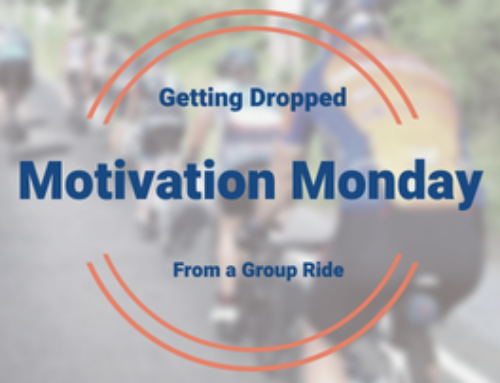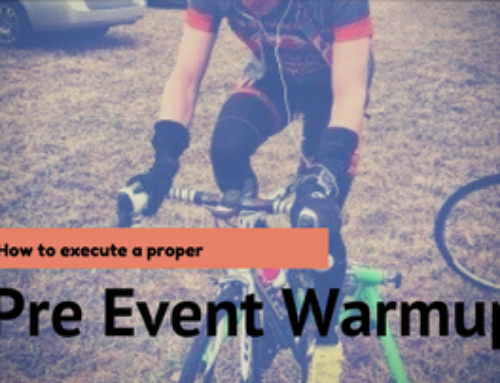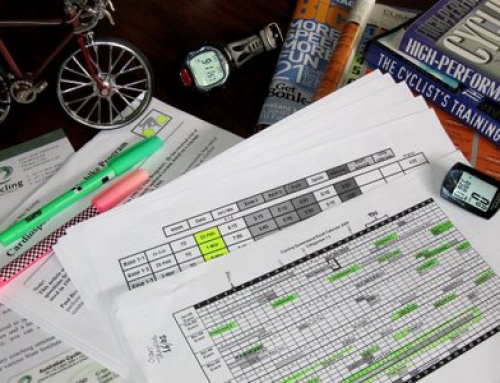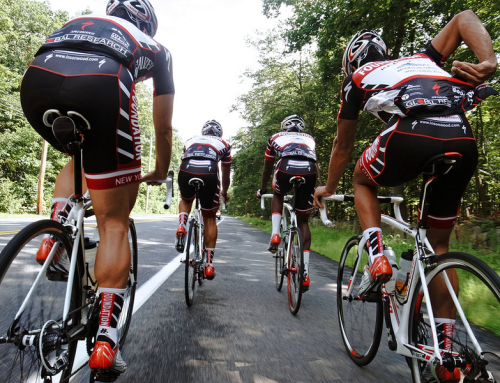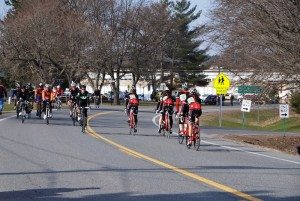 For new riders and even seasoned saddle jockeys who ride solo, the prospect of a group ride can be an intimidating thing. Questions such as “what if I make a mistake?” “what if I embarrass myself?” “what if I cause a crash?” “what if I get dropped?” are all common ones for new group riders. But with a few simple guidelines, you'll be ready to roll and should have nothing to fear from your first group ride.
For new riders and even seasoned saddle jockeys who ride solo, the prospect of a group ride can be an intimidating thing. Questions such as “what if I make a mistake?” “what if I embarrass myself?” “what if I cause a crash?” “what if I get dropped?” are all common ones for new group riders. But with a few simple guidelines, you'll be ready to roll and should have nothing to fear from your first group ride.
Find out the group dynamic
Contact the ride leader before hand, or if worst comes to worst, show up at the ride and ask what the dynamic is. Is a friendly social ride or a hammerfest? Is it a no drop ride or will there be blood spilled at the first opportunity? How many of each A, B and C groups, and how many riders usually choose each group? Any competitions (King of the Mountains or town line sprints?) Are there hydration stops or do they have any regrouping points? What's the route in case you get dropped (or is there a cue sheet available?)
Finding out these little details about the group and the ride will ease your mind and allow you to determine if this ride is appropriate for you. Generally, the speed of group rides is faster than your solo speed, only because you'll be sharing the workload with a bunch of other riders. Basically, you can expect to tack anywhere between two and four MPH average onto your solo average speed, provided you stick with the group. So when the group ride is 18 MPH, if you can sustain 15 or 16 MPH, you'll probably be ok. Finding out about other things such as water stops, competitions, drop or no drop etc can help to determine how many attacks will happen and how often the pace will change, taxing your legs.
Get there on time
Since most of us don't ride for a living, we have jobs, families and sometimes kids to attend to. Nothing sucks more than waiting for a rider who shows up late to a ride, cutting into your riding time. Don't be that guy: give yourself at least an additional 15 minutes to get to the ride start and get geared up. Speaking of time to get ready, be sure to find out if the posted time is the “roll out” time or arrival time. If you have a 5:30 rollout, and you're pulling into the lot at 5:30, you'll be left behind.
Communicate with the group
Communication is the key to group riding. You're entrusting your safety to those around you, and they with you. While it takes a little time to get to know and trust other riders, communicating with them during the ride can ease tension and build trust. Pointing out road hazards (gravel, potholes, parked vehicles) will help to keep the group safe. The same goes for calling out dangers with verbal cues (“car back” for cars approaching the rear of the group, “car up” for cars up ahead, “car left/right” for cars coming from the sides, “runner/cyclist/wildebeest up” for other road users.) It's always a good idea to talk to the group leader or members to get an idea of what their communication system entails, especially any special signals or calls they use frequently.
Ride safely and considerately
Don't do something stupid and get yourself or your group a ticket. Be smart, and respect the rules of the road. Just as importantly, respect the rules of the Peloton (group of riders.) Don't do something stupid in the group and cause a crash. By observing a couple simple rules, you'll keep yourself and others safe.
- Stay alert at all times. Be aware of the riders and objects around you
- Be predictable. Hold your line steady, don't make sudden movements, turns or weave around in the group.
- Don’t overlap wheels. Never put yourself in a position where the movement of the person in front of you will take out your wheel and crash you.
- Don't look back. Not for long anyway. It takes skill to crane that big 8 pound head backwards and not make you come off your line. Practice on your own to get used to the motion and be careful looking behind in the group.
- Relax. All your movements are more fluid when you are relaxed and feeling loose.
- Focus on the rider(s) ahead. You're not responsible for the guy behind you (provided you're being predictable.) Watch what's happening in front of you and react to that.
- Don’t brake unless absolutely necessary. See: being predictable. If a situation arises where you need to brake, speak up and say “slowing” or “stopping.”
Be prepared
Don't rely on others to bring a tube, CO2 inflator, multi tool, water, food, etc etc. Pack it all and know how to use it. Most groups don't mind helping out in a pinch, but a lot of riders frown on people who head out for a ride with their pockets empty and their saddle bag at home on the table.
Relax and learn
You're going to make mistakes when you first begin group riding. It's inevitable. The best thing you can do is learn from those mistakes and listen to the more experienced riders. Cyclists are (generally) a very generous group: they love to teach others about the sport they love. When they give information, take it in, process it, ask questions if necessary and try to correct the problem next time.
With a little patience and perseverance you'll be fluidly rotating through pacelines and climbing in the middle of a group of riders like you were born there. Just keep plugging away and learn the ins and outs of group riding, and a whole new world of riding will open up to you.
Thoughts? Comments? Questions? Did I miss something? Drop a line and let me know.

